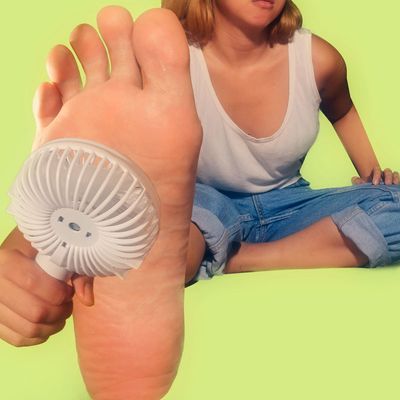Recognizing the Origin of Excessive Sweating and Its Influence On Every Day Life
While it is frequently comprehended as a physiological feedback to control body temperature, the triggers for excessive sweating can vary widely amongst people, encompassing not just physical aspects but mental and additionally psychological elements. By delving into the origin creates of hyperhidrosis and exploring its diverse impacts, a deeper understanding of this pervasive concern can be obtained, losing light on the complexities that people grappling with extreme sweating browse on an everyday basis.
Physiology of Sweat Glands
The guideline of sweat production, an important physiological process, is mainly regulated by the activity of sweat glands dispersed across the human body. Sweat glands are classified into two primary types: eccrine and apocrine glands.
When the body temperature climbs, either because of physical activity, high temperatures, or emotional stress, the nerve system sets off the gland to generate sweat. This sweat is made up mainly of water and electrolytes like salt and chloride. The process of sweat manufacturing is vital for preserving the body's inner temperature within a slim, optimum array, highlighting the vital duty sweat glands play in human physiology.
Triggers for Excessive Sweating
In recognizing the root triggers of excessive sweating, it is crucial to recognize the triggers that can lead to this physical reaction. Physical exertion, high temperature levels, and spicy foods are additionally known to activate extreme sweating in people prone to this condition.
Furthermore, medications such as some antidepressants, opioids, and certain supplements can likewise work as triggers for hyperhidrosis. Understanding these triggers is necessary in handling too much sweating properly - Treatment for hyperhydrosis of hands. By determining and attending to the specific triggers that trigger extreme sweating in a private, doctor can develop personalized therapy strategies to minimize this condition and improve the person's lifestyle
Medical Conditions Associated
Related to too much sweating are different medical conditions that can worsen this physiological reaction. One common problem is hyperhidrosis, a problem characterized by unusually boosted sweating that surpasses the body's thermoregulatory needs. This can materialize in focal locations like the palms, soles, underarms, or face, influencing a person's high quality of life because of social shame and discomfort.
Furthermore, endocrine conditions such as hyperthyroidism, diabetes mellitus, and menopausal warm flashes can additionally result in too much sweating. Hyperthyroidism causes an overproduction of thyroid hormonal agents, increasing metabolic process and triggering sweating. Diabetes can generate sweating episodes, specifically throughout hypoglycemic episodes when blood sugar level degrees drop too low. Menopausal warm flashes, associated to hormone variations throughout menopause, can trigger extreme and abrupt sweating, often gone along with by flushing and heart palpitations.
Additionally, infections like hiv, tuberculosis, and endocarditis have actually been linked with evening sweats, an usual symptom recognized to interfere with rest and go right here influence total well-being. These clinical conditions highlight the varied variety of underlying variables that can add to too much sweating, demanding complete assessment and management by medical care specialists.
Psychological and Psychological Aspects

Impact on Social Interactions
Extreme sweating can have extensive impacts on an individual's capacity to involve easily in social communications. The noticeable signs of sweat stains or damp spots on clothes can result in embarrassment and self-consciousness, causing individuals to take out from social scenarios. This withdrawal can influence connections, limitation social tasks, and impede individual and professional development.
:max_bytes(150000):strip_icc()/the-doctor-cosmetologist-makes-injections-of-botulinum-toxin-on-the-palms-of-a-woman-against-hyperhidrosis--women-s-cosmetology--skin-care--1254089846-9a8ff2f7f5dc47f18339b3c9d138c5fd.jpg)
In addition, the stress and anxiety and great post to read self-worth concerns coming from excessive sweating can affect interaction and social skills. Individuals may have a hard time to concentrate on discussions, join team tasks, or share themselves with confidence. This can bring about feelings of isolation and solitude, as social links end up being testing to keep.
Final Thought

While it is frequently comprehended as a physical feedback to manage body temperature, the triggers for too much sweating can vary extensively amongst individuals, encompassing not only physical factors but emotional and likewise emotional components. By delving right into the origin causes of hyperhidrosis and discovering its diverse effects, a much deeper understanding of this pervasive concern can be obtained, dropping light on the intricacies that individuals grappling with too much sweating browse on an everyday basis.
Physical exertion, high temperatures, and spicy foods are likewise known to cause excessive sweating in people vulnerable to this problem. By recognizing and addressing the specific triggers that prompt excessive sweating in a specific, health care providers can develop customized therapy plans to reduce this problem and boost the individual's top quality of life.
Excessive sweating can have extensive results on a person's capability to engage pleasantly in social communications.